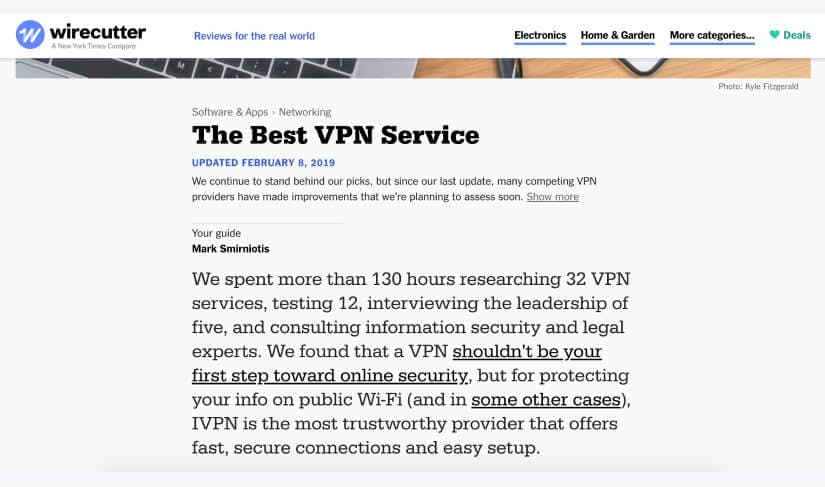What is Affiliate Marketing?
Whenever an online resource or advertiser directs you to a site to make a purchase, you’re witnessing affiliate marketing in action. Perhaps you used an online calculator which pointed you to the site of a product that best suits your needs? Maybe a voucher code site led you to the payment page where you can redeem your discount? Or your favorite Instagram influencer gave you the option to ‘Shop Now’ after you saw her wearing those amazing leggings? None of these instances involved you going direct to a site to make a purchase - you went through someone else who encouraged and directed you there.
Affiliate marketing is a simple concept: a person or organization earns a commission for marketing the products of another person or organization. An affiliate is an official partner, connected to the person or company who want to get the word out about their product with affiliate links that trace the customer’s journey to the final purchase. The ways in which an affiliate earns their commission can differ - some are paid per sale, others per lead or per click - but regardless of the means, the affiliate links make sure that the correct affiliate gets the credit for a successful conversion.
Why should software companies use Affiliate Marketing?
Affiliate marketing brings your company a lot of benefits. First and foremost, it drives that all-important online traffic to your site, as well as broadening the potential audience for your product and helping you reach new customers in other countries. Affiliate marketers know online marketing inside and out and are an extremely valuable resource for you to better understand how to get people looking at your product. When functioning at its best, your affiliate partner essentially operates as an arm of your pre-existing marketing team.
Keeping costs under control
It’s important when starting an affiliate program to keep an eye on costs. If you consider your affiliate partner(s) as an extension of your marketing team, you should be thinking that way when it comes to costs too. How much are your current acquisition costs? It’s not always a cheap route to partner up with an affiliate, but if the cost is equal to or lower than your current acquisition costs it could be well worth pursuing. When working with an affiliate network, as we discuss later in this blog, make sure that you negotiate a commission structure that both parties are happy with to avoid any surprises along the way. Remember, if things are going great for your company, they’re going great for your affiliate too. It should be a win/win - just be aware that you’re not just giving money away if affiliates are benefitting from sales that would have happened anyway!
DIY affiliate marketing sweet spots
We know what you’ve heard. Some affiliate methods of driving traffic have given this form of marketing a bad name, with spam content and those intrusive pop-ups that appear the second you open a page, being used to funnel potential customers towards a checkout. These methods haven’t taken into account a potential buyer’s journey, however, and when people feel bombarded they’re likely to click away and may even abandon their planned purchase.
Affiliates have a variety of methods to reach a product’s target audience, from marketing through email lists to posting deals on voucher sites. With more and more ways to reach potential customers online, let’s take a look at some of the traditional affiliate methods together with the newer strategies that social media has made possible.
Email lists
Email is still the king of internet marketing tactics, driving an incredible $44 ROI for every $1 spent according to campaignmonitor.com. Partnering with specific publications and their email newsletters including hyperlinks to your products can be an effective way of driving those conversions. When undertaking email marketing yourself, forget the detrimental effect a poorly acquired email list can have on your business. Make sure all your contacts are opted in and are compliant with local laws.
Blogging
Bloggers are in a great position to help you increase conversions. Not only do they have a great deal of influence over regular readers (who could be your future customers) with their intimate, conversational content, they are also able to carefully word their blog content to optimize their ranking on search engine results and boost the visibility of the product they’re promoting. This channel of affiliate marketing often takes the form of a product review or a lifestyle piece in which the product is prominent. Finding the right blog which is suited to your product is key here.
Social media micro-influencers
The number of companies using social media marketing now exceeds 88% according to a recent article in adweek.com, with getambassador.com finding that over half of all social media users are interacting with brands more than once a month. We’re actively searching social media every day and brands are taking notice and reaping the rewards. With a large, warm market tuning into their content, micro-influencers are in a prime position to promote products and direct their fans towards making a purchase without pushing sales or stepping outside of their own personal brand.
Micro-influencers are a collection of ‘average joe’ users who have a larger number of followers and an engaged audience. In this instance, you’re not looking to work with the next Kim K.
The voice changer application Voicemod is a great example of a SaaS company that utilizes both social media and blogging in their affiliate marketing strategy. The company has paired up with YouTubers to market their voice changing tools: internet personalities who have a strong fanbase that will enjoy seeing their online idol talking like a cyborg!

Voucher sites
Voucher sites are big business in affiliate marketing. With consumers always on the lookout for deals, companies can benefit from increased traffic and more conversions when featured on discount sites. In turn, the affiliate partner makes their commission for every voucher of theirs used to complete a purchase. Download.com, for example, offers an array of popular apps and programmes with easy to access download links in one place. You download, they earn.
Review sites
Sites that offer reviews, impartial advice and calculation tools are in a strong position to make money through affiliate links. Check out Wirecutter as an example, a leading product review site that focuses on delivering quality reviews of all kinds of products, from household items to software, that they have found to be superior to the competition, without being swayed by commercial interests.
Wirecutter is very transparent about the fact that it does not accept sponsored posts or adverts. The result? A trustworthy, useful resource that gets 3.6 million visits per month and makes money through affiliate links attached to their ‘best of’ product pages and through answering reader questions about the best products to buy.

Affiliate Networks Specific to Software Products
Affiliate marketing done right can get more eyes on your site, more hype around your product and more sales for your business. So, where does your software company begin? Joining up with an affiliate network is a great way to ‘plug in and play’, with experienced affiliates taking on the heavy lifting. Some of the best-known software brands run their affiliate marketing programs on what is widely considered ‘traditional’ affiliate networks such as Awin or CJ Affiliate (formerly Commission Junction).
Here at Paddle, we integrate with companies like Tapfiliate, a tool that enables you to create your own affiliate program, to provide the payment and billing infrastructure to ensure you maximize the opportunity for conversion.
Want to learn more about how Paddle can help your software business drive conversions? Request a demo here.




